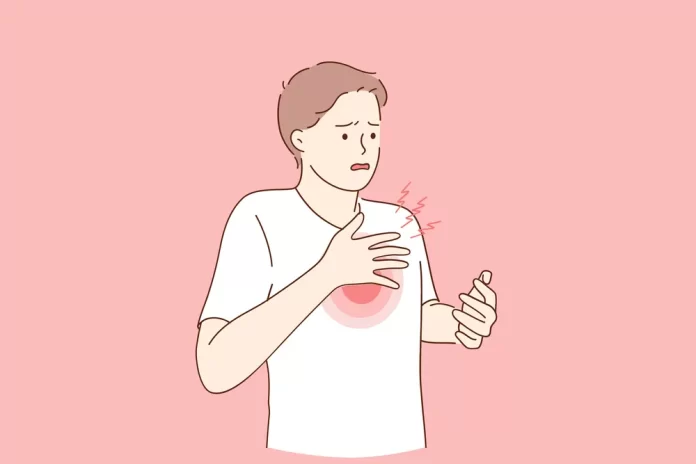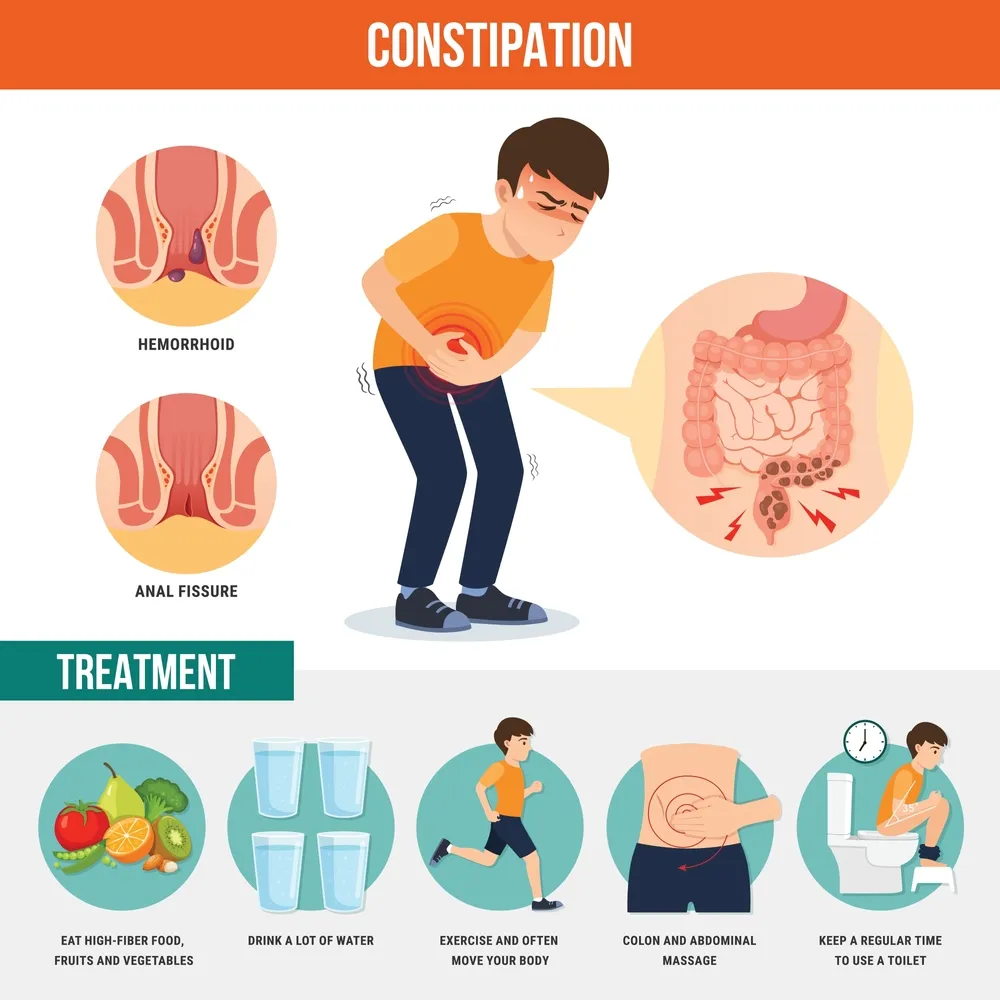
While it may seem surprising, constipation can give rise to chest pain in some cases. You might be wondering how this is possible – after all, aren’t constipation and chest pain completely unrelated? Well, not quite. But how can constipation cause chest pain?
Constipation can cause chest pain by putting pressure on organs in the abdomen, such as the stomach and diaphragm, which can cause discomfort or pain in the chest area. It can also lead to acid reflux, which can cause a burning sensation in the chest.
What is constipation?
Constipation is a common digestive problem in which a person has trouble passing stools or has rare bowel movements. It is usually marked by hard, dry stools that are hard to pass and can come with discomfort or pain in the belly.
Many factors, including a lack of fiber in the diet, dehydration, some medications, or underlying medical conditions such as irritable bowel syndrome or hypothyroidism, can cause constipation. In most cases, constipation is not a severe condition and can be treated with simple lifestyle changes such as eating more fiber, drinking more water, and exercising regularly.
How can constipation cause chest pain?
Constipation can sometimes manifest as chest pain due to the following mechanisms:
Trapped gas
Constipation leads to excess gas buildup in the intestines as the stools are not eliminated efficiently. This trapped gas can pressure the diaphragm and surrounding organs like the heart. This can lead to a sensation of chest tightness, pain, and discomfort. A bloated and gassy stomach due to constipation can make you feel like you have chest pain when it’s actually the gas causing the issue.
Referred pain
The vagus nerve connects the colon and heart, and it can sometimes transmit signals from the colon to the brain, which interprets them as coming from the heart. So the pain and discomfort from a constipated colon can be felt as discomfort in the chest. This is known as referred pain. For example, some people experience chest pain and tightness after eating dairy or fried foods that can irritate the colon.
Anxiety
Severe constipation can also trigger anxiety, stress, or even panic in some people due to the pain and discomfort. This anxiety can exacerbate symptoms like chest pain, rapid heart rate, sweating, etc. For instance, the worry and concern over complex bowel movements may manifest as anxiety-related chest pain and discomfort.
Muscle spasms
Constipation may lead to spasms or contractions of the colon, abdomen, or diaphragm. These spasms can be felt as pain extending up to the chest. Some people report crampy chest pain that comes and goes, related to constipation and muscle spasms.
Symptoms of constipation-induced chest pain
The symptoms of chest pain caused by constipation can vary depending on how bad the constipation is and the person’s overall health. However, common symptoms of chest pain caused by constipation include:
- Discomfort or pain in the chest area, which may be felt as tightness, pressure, or burning feeling
- Pain that may spread to other parts of the body, such as the shoulders, arms, or back
- Trouble breathing or shortness of breath
- Nausea and vomiting
- Feeling bloated or full
- Rare or irregular bowel movements
- Pushing during bowel movements
- Hard, dry stools that are hard to pass

Treatment and prevention of constipation-induced chest pain
The treatment and prevention of constipation-induced chest pain will depend on the underlying cause. In most cases, constipation can be treated and prevented with simple lifestyle changes, such as:
- Increasing fiber intake: Eating more fruits, vegetables, and whole grains can help soften the stool and make it easier to pass.
- Drinking more water: Staying hydrated can help keep the stool soft and prevent constipation.
- Regular exercise: Regular exercise can help improve bowel function and prevent constipation.
- Over-the-counter laxatives: Laxatives can help soften the stool and make it easier to pass.
In addition to these lifestyle changes, medications may also be prescribed to treat constipation and prevent chest pain. These may include:
| Stool softeners | Stool softeners can help soften the stool and make it easier to pass. |
| Fiber supplements | Fiber supplements can help increase fiber intake and soften the stool. |
| Enemas | Enemas can help relieve severe constipation by flushing out the colon. |
| Prescription medications | Medications like lubiprostone and linaclotide can help improve bowel function and relieve constipation. |
FAQs
Conclusion
Chest pain caused by constipation can result from more pressure in the belly or acid reflux caused by constipation. The symptoms of chest pain caused by constipation may include discomfort or pain in the chest area, trouble breathing, and rare bowel movements.
Treatment and prevention options include lifestyle changes such as eating more fiber, drinking more water, and regular exercise. In addition, medications such as stool softeners, fiber supplements, enemas, and prescription medications may be used to treat constipation and prevent chest pain. If chest pain lasts or is joined by other worrying symptoms, getting medical help to check for any severe underlying conditions is essential.

